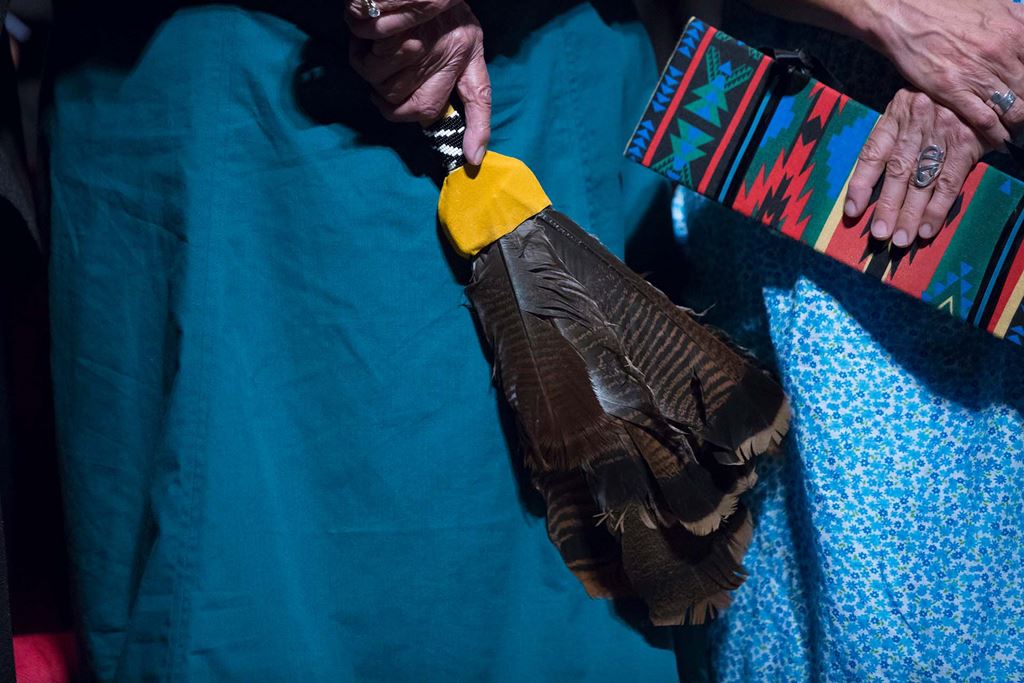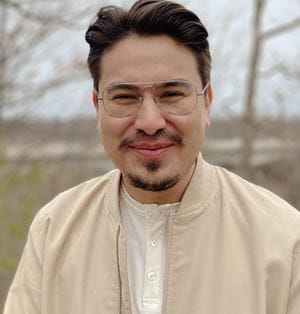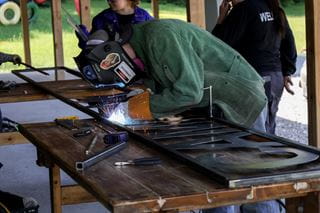
How can we support Indigenous learners?
 by Carolina Salcedo – Sep 27, 2021
by Carolina Salcedo – Sep 27, 2021 
In Take 5, Sheridan's thought leaders share their expert insight on a timely and topical issue. Learn from some of our innovative leaders and change agents as they reflect on questions that are top-of-mind for the Sheridan community.
 As Director of Indigenous Engagement, Elijah Williams oversees Sheridan’s Centre of Indigenous Learning and Support. Among his many initiatives, Williams works to amplify Sheridan’s Indigenous voices. Part of that work involves empowering Sheridan’s Indigenous community to lead important discussions related to reconciliation.
As Director of Indigenous Engagement, Elijah Williams oversees Sheridan’s Centre of Indigenous Learning and Support. Among his many initiatives, Williams works to amplify Sheridan’s Indigenous voices. Part of that work involves empowering Sheridan’s Indigenous community to lead important discussions related to reconciliation. But, as Williams notes, the work of truth and reconciliation is a shared responsibility. In the lead up to National Day for Truth and Reconciliation on September 30, Williams reflects on this shared responsibility of advancing truth and reconciliation, the supports that will make a difference for Indigenous learners, and how to meaningfully introduce Indigenous knowledge in postsecondary education. “It’s not easy work and we need to share the load – it is exhausting for Indigenous people to bear alone. I’m confident that if we take thoughtful, deliberate actions now towards truth and reconciliation, future generations will see this work flourish,” Williams says.
1. You have a Bachelor of Photography from Sheridan and a Masters of Professional Education with a focus on Indigenous leadership. How does some of your academic background inform your role as Director, Indigenous Engagement at Sheridan?
My background in both the arts and Indigenous leadership compels me to focus on the role of Indigenous leaders within the practice of truth and reconciliation, and how I see myself within this journey. As a leader, it’s my job to help interpret policies, determine how best to apply the message of truth and reconciliation, and decide how to advocate. But it’s important to remember that Indigenous leaders don’t have all the answers; we all hold a piece of the puzzle and a shared responsibility to learn from the past and build a better path forward together.
2. We often talk about the importance of decolonizing education in the context of truth and reconciliation. How do we authentically and meaningfully introduce Indigenous knowledge into curriculum?
This process always ties back to our understanding of the truth; truth must always come before reconciliation. We need to ensure our collective society understands the shared history, the relationship between Indigenous and non-Indigenous people, the key actions that set this generational trauma in motion, and more. There are still so many people who don’t fully understand the impact of these historical policy decisions. We’ve seen that in the past few months with the painful discovery of the unmarked graves at residential schools – it’s a harsh reality that we need to work through first before we can truly move on to reconciliation.
As educators, one important step we can take to help decolonize education is ensure that academic quality assurance mechanisms include an Indigenous lens. During program reviews for instance, we should carefully consider whether we are embedding appropriate Indigenous knowledge, where that knowledge will be sourced and who will be responsible for leading that process.
3. The COVID-19 pandemic has had a disproportionate effect on marginalized communities, including Indigenous people. What policies and resources are needed to further support Indigenous learners?
COVID has further highlighted the gaps in technology and internet connectivity access for those who live on Indigenous reserves, and this has become a major barrier for many students. Only 24% of Indigenous communities have access to reliable internet connectivity (source).
There are many ways that postsecondary institutions can support Indigenous learners in these circumstances. One vital action we can take is facilitate technology and internet access for those who may not have it readily available if they live on an Indigenous reserve. Supports like laptop rentals and access to study space on campus are so important for these students. I would also encourage faculty members to be as accommodating as possible if a student does not have technology or connectivity access at home.
The other crucial piece is government investment in infrastructure for Indigenous reserves. We need to provide better technology access, and of course more reliable health supports for these communities.
4. What is something every member of our Sheridan community can do to take responsibility for Canada’s legacy and help advance truth and reconciliation?
One simple but powerful action everyone can take is to read the Truth and Reconciliation Report, starting with the executive summary. It’s accessible through National Centre for Truth and Reconciliation website.
Everyone should take a moment to read and absorb the calls to action. While reading it, I also encourage people to think about the human reality behind the facts and figures – consider how this could have impacted you and your family if you had been in those same circumstances. Perhaps you even know someone whose family and ancestors have lived through it. Reflect on how this painful history still affects so many Canadians to this day.
5. Sheridan’s Centre for Indigenous Learning and Support plays a pivotal role in helping Indigenous students connect to their community. What can students and faculty members do to help new Indigenous students feel welcome and supported as they join our community?
We need to meet Indigenous students where they’re at. Some students may be completely comfortable with their Indigenous identity and have a strong understanding of where they come from. But others may not. It’s also important not to make the Indigenous members of our community feel like they need to be experts on Indigeneity. Sometimes this pressure can have a reverse effect and make them feel unsafe.
Ask Indigenous students how you can support them. Educate yourself and strive to grow. Sheridan is a learning institution; our role is to provide our community members with a space to reach out, ask questions, and access the wealth of resources available to help further their understanding of the truth.
Elijah’s advocacy is informed by his background as a member of the Turtle Clan of the Cayuga Nation. The values and principles of the Haudenosaunee prescribes that the work he does needs to build a positive legacy for people living generations from now. He is an educator from Six Nations of the Grand River Reserve #40 and currently resides in Oakville, Ontario.
Elijah oversees the operations of the Centre for Indigenous Learning and Support. In addition to his role at Sheridan, Elijah is the Chair of the Board of Directors at Grand River Employment and Training (GREAT). Recently, Elijah joined the Peel Regional Police Chief’s Resource Council and Peel Regional Police Anti-Racism and Human Rights Committee. Elijah believes in the transformative power of Indigenous knowledge and ways of knowing, providing learners with an educational toolkit to flourish and thrive.
The interview has been edited for length and clarity.
Media Contact
For media inquiries, contact Sheridan’s Communications and Public Relations team.





